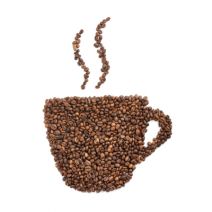Directive Blogs
Coffee! Coffee! Coffee! ...May Actually Be Slowing You Down
 On your journey through entrepreneurialism, few resources you’ve encountered are as valuable as those that will stick around unconditionally. In fact, few things are as reassuring in the morning as the smell of coffee grounds stewing in the pot, producing that mesmerizing aroma that could snap Sleeping Beauty out of her coma.
On your journey through entrepreneurialism, few resources you’ve encountered are as valuable as those that will stick around unconditionally. In fact, few things are as reassuring in the morning as the smell of coffee grounds stewing in the pot, producing that mesmerizing aroma that could snap Sleeping Beauty out of her coma.
Without a doubt, your office coffee pot is one of your business’s most treasured features. However, coffee (and caffeine in general) only offers a pseudo-performance increase that comes with steep side effects shortly afterward.
What Caffeine Does
It’s true that caffeine does have its merits, albeit temporarily. A study performed by researchers at John Hopkins Medical School showed that caffeine has the ability to improve task performance and cognitive abilities over the short term; yet, the effects of caffeine can’t be felt without caffeine withdrawal immediately afterward. This naturally tempts the user to go for another cup to remediate the issue and get back up to speed… which, in reality, is the result of being reliant on it for maximum performance.
Furthermore, caffeine builds adrenaline when it’s consumed. This is the same response that occurs when you’re faced with a life-threatening situation, commonly known as the “fight-or-flight” syndrome. Basically, your brain and body emotionally respond to issues rather than logically. Those in business know that this can be a threatening prospect, as it can turn responding to email or customer complaints into an absolute nightmare.
Finally, at the end of the day, you’ll feel exhausted; yet, when you want to get to sleep, you might find it difficult to let go and drift off into blissful respite. This is because caffeine, according to Inc, has a six-hour half life:
Have a cup of joe at 8 a.m., and you'll still have 25 percent of the caffeine in your body at 8 p.m. Anything you drink after noon will still be at 50 percent strength at bedtime. Any caffeine in your bloodstream--with the negative effects increasing with the dose--makes it harder to fall asleep.
As you can understand, this makes it difficult to get the full night of good, quality sleep, that allows the brain to rejuvenate and get back to full capacity. You’ll wake up feeling tired, go for the caffeine almost immediately, and drink more in the afternoon as the withdrawal kicks in.
The Side Effects
Unfortunately, it’s been proven that caffeine can produce several adverse side effects that can be detrimental to your cognitive thought process and overall health. According to Inc, some of the most hampering side effects of caffeine include:
- Irritability
- Anxiety
- Headaches
- Insomnia
- Sleep deprivation
Of course, there are plenty of other consequences of prolonged caffeine exposure, but these are the ones that directly affect the thought process; which is the most imperative part of getting just about anything done in the workplace. Other problems, like frequent urination and gastrointestinal issues can arise from too much coffee ingestion, and can negatively affect your physical wellbeing, in addition to your mental state of mind.
Overall, caffeine addiction is no small issue. Cutting yourself off from coffee and similar beverages can lead you down a path to a better lifestyle, but it’s not a simple task to remove it from your life completely. So many people worldwide are in the habit of enjoying their morning cup of joe that it’s not a viable possibility. Rather than immediately cut yourself off from caffeine, try a staggered approach and limit your intake over an extended period of time. Whether or not you want to do this is entirely up to you, but research suggests that it can improve both your way of life and your work ethic.

